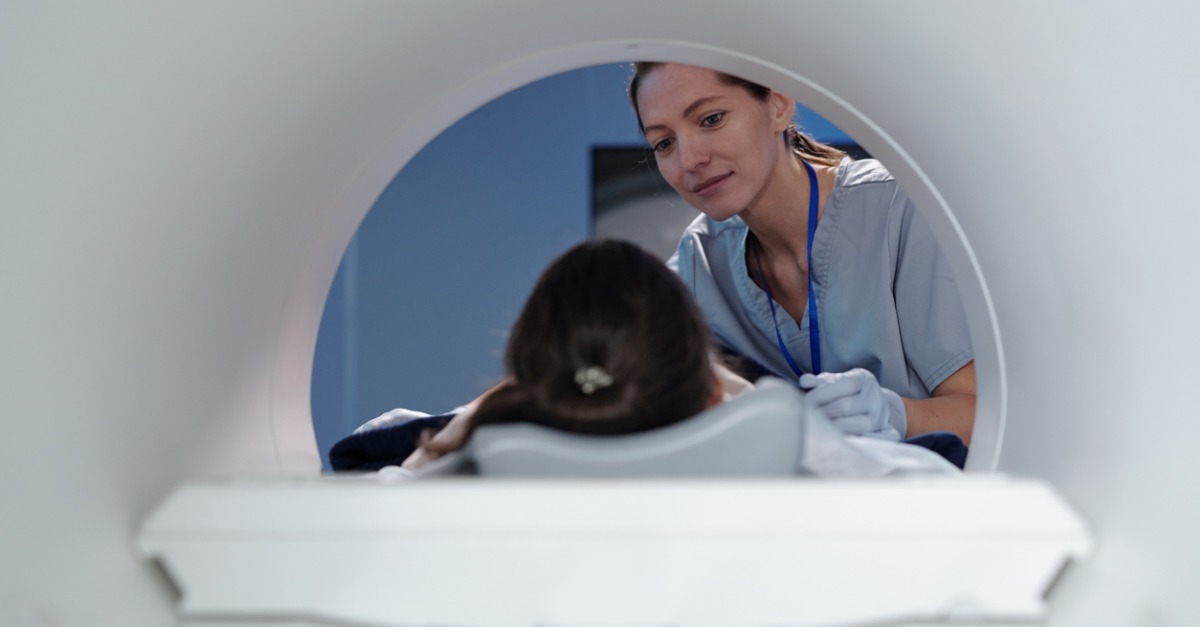Magnetic resonance imaging (MRI) captures images of the body’s internal structure to help detect abnormalities and diagnose conditions. Roughly 30 million MRIs are performed in the U.S. each year. Nonetheless, if you’re new to MRIs, you may understandably wonder whether it could have an impact on you.
What Happens to the Body During an MRI?
MRI machines feature a large cylinder equipped with a powerful magnet used to create a magnetic field around you. A scanner then sends radio waves, briefly knocking the nuclei of your body’s atoms into a different position. As they realign, the nuclei create radio signals which are captured by a computer to create images of your organs and internal structures.
While this process may sound like it would affect your body in a profound way, most patients don’t feel anything at all during the process. In a few cases, some patients have reported a twitching sensation, which can happen if the MRI process stimulates nerves, but it’s a normal, temporary effect that does not linger.
Are MRIs Considered Safe?
Unlike CT scans and X-rays, MRIs don’t expose the body to ionizing radiation. Thus, they’re often the preferred imaging method for detecting detailed musculoskeletal issues. As Johns Hopkins Professor of Radiology and Radiological Science Laura Marie Fayad, M.D., M.S. explains: “Often, problems are too subtle to see on an X-ray. That’s where MRI comes in. An MRI offers excellent contrast resolution for bones and soft tissues.”
What an MRI utilizes instead is a strong magnetic field — the clinical standard being 1.5 Tesla. According to the UCSF Department of Radiology & Biomedical Imaging, this field is roughly 21,000 times greater than that of the earth. While there are no biological effects observed at a cellular level when patients are exposed to this magnetic field, metal objects could become airborne projectiles when exposed to its strength.
This is why MRI safety is taken so seriously at our imaging center. Not only are any potentially hazardous items removed from the room, but patients are requested to change into scrubs so there’s no risk from metal fragments that could linger in clothing. Even with these safety precautions in place, there are some people for whom MRIs could pose a serious risk.
Who Could Be At Risk During an MRI?
The strong magnetic field in MRIs may cause device malfunctions, excessive heating, or projectiles in people with foreign metallic matter in their bodies, including:
- Cardiac implantable electronic devices
- Cochlear implants
- Metal shrapnel or piercings
- Drug infusion pumps, including for insulin delivery
- Catheters
- Magnetic dental implants
- Artificial limbs
- Implantable neurostimulation systems
Patients are thoroughly screened prior to MRIs to ensure they have none of the above risk factors. The removal of watches, jewelry, dentures, and wigs is also required.
In general, an MRI is a highly safe and effective imaging test. But if you have any concerns about how it may impact you, don’t hesitate to speak with one of our experienced technologists. Get in touch by calling (540) 321-3190 or visiting our website.

